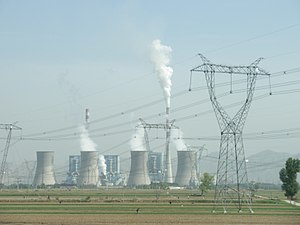The world’s two largest emitters of greenhouse gases will share innovative technologies to clean up coal burning
U.S. and Chinese officials heading up a series of joint advanced coal projects Friday signed an intellectual property agreement meant to ease the sharing of innovative technology while protecting patents and licensing agreements.
Companies collaborating on research and development projects tied to the U.S.-China Clean Energy Research Center (CERC), a program started in 2009, can enter into regular commercial contracts. But energy technology companies participating in the U.S.-China program must negotiate licenses “in good faith” to ensure both nations benefit.
Inventors of technology can set the terms, according to a description of the agreement, including royalties and limits on the use of an invention. But the terms cannot be so restrictive that they in essence bar the sharing of advanced coal technology by the United States and China.
Major energy companies have a stake in the plan for protecting intellectual property, including U.S. energy giants General Electric? and Duke Energy? and the French conglomerate Alstom. U.S. and Chinese officials visiting the West Virginia University campus in Morgantown to sign the agreement Friday said the governments also have a lot to gain by greasing the wheels for further cooperation on clean energy.
Robert Marlay, director of the CERC program out of the U.S. Department of Energy, said the intellectual property agreement flows from direct talks among U.S. and Chinese leaders, “suggesting diplomatic and binding support of the agreement.”
Ending a culture of distrust?
With both governments putting their stamps of approval on an enforceable approach to intellectual property, Marlay said, U.S. and Chinese companies could be more willing to work together.
U.S. developers of energy technology have been wary about making innovations available to Chinese energy producers for fear their inventions will be copied. Chinese companies are also doing more inventing, and the nation’s patent laws are becoming more sophisticated. That has spurred both sides to negotiate a solution.
Bookmark this page for “Clean Coal Research” and check back regularly as these articles update on a very frequent basis. The view is set to “news”. Try clicking on “video” and “2” for more articles.








